 Following the BC forestry council’s call for a fundamental policy shift, industry and labour groups, politicians and environmental organizations offered sharply differing views — while Vaughn Palmer questioned whether the government will act. In relate news: a new report calls for better coordination of BC’s wildfire reliance efforts; US lawmakers debate the Fix Our Forests Act; while Washington state considers changes to riparian buffers.
Following the BC forestry council’s call for a fundamental policy shift, industry and labour groups, politicians and environmental organizations offered sharply differing views — while Vaughn Palmer questioned whether the government will act. In relate news: a new report calls for better coordination of BC’s wildfire reliance efforts; US lawmakers debate the Fix Our Forests Act; while Washington state considers changes to riparian buffers.
In Business news: BC’s Attorney General will take the lead on future Walbran prosecutions Ontario’s mill closures raised in House of Commons; a Montana economic report points to forestry woes; and Chinese imports are threatening Australian jobs. Meanwhile: Russ Taylor joins the BC’s Forestry Innovation Investment board; the BC Foresters’ conference kicks off today; and the latest from FSC Canada.
Finally, US Department of Energy scientists blast climate report ordered up by boss.
Kelly McCloskey, Tree Frog News Editor
 COFI 2026 CEO Panel to Tackle the Forest Sector’s Future: The
COFI 2026 CEO Panel to Tackle the Forest Sector’s Future: The 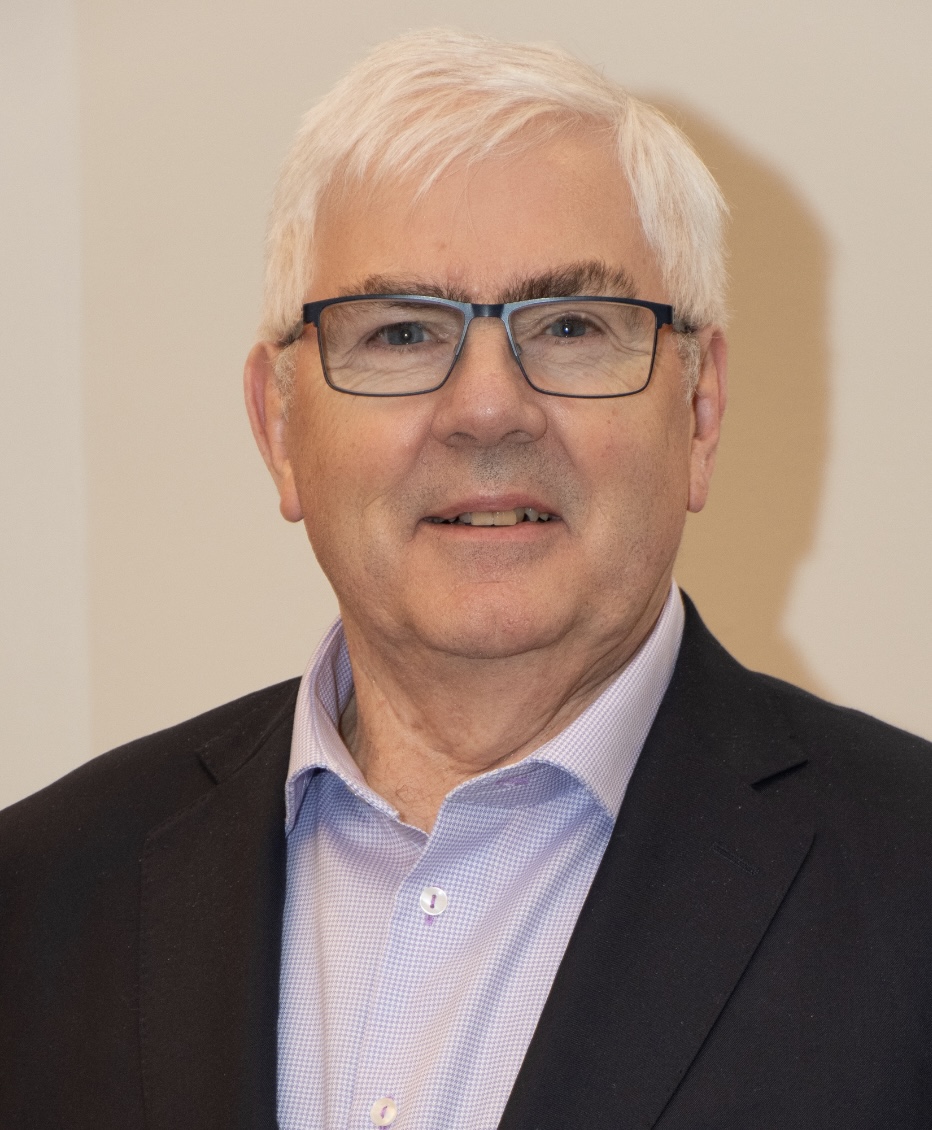

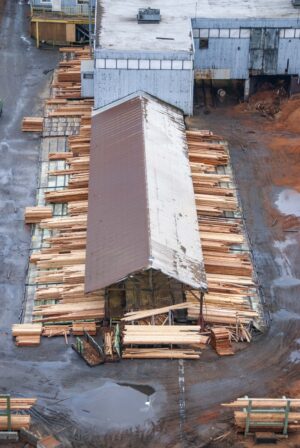 Montana’s forestry industry is entering this year with more questions than answers, from low lumber prices to high housing costs for workers to questions about tariffs, but there is room for strategic adaptation. That’s according to an economist who gave an update on the sector in the 2026 Montana Economic Report, put out by the Bureau of Business and Economic Research at the University of Montana. …Scott said the number of people employed in the private sector in forestry in Montana statewide has dropped in 2025. …His main points are that while timber harvests are down, the federal government is making a push to increase harvests. …He said the Trump administration’s tariff policy remains another wildcard. “A combination of lumber and trade-related tariffs has been implemented to bolster domestic demand, by raising the cost of Canadian lumber… it is still too early to tell whether these measures will meaningfully shift trade flows.”
Montana’s forestry industry is entering this year with more questions than answers, from low lumber prices to high housing costs for workers to questions about tariffs, but there is room for strategic adaptation. That’s according to an economist who gave an update on the sector in the 2026 Montana Economic Report, put out by the Bureau of Business and Economic Research at the University of Montana. …Scott said the number of people employed in the private sector in forestry in Montana statewide has dropped in 2025. …His main points are that while timber harvests are down, the federal government is making a push to increase harvests. …He said the Trump administration’s tariff policy remains another wildcard. “A combination of lumber and trade-related tariffs has been implemented to bolster domestic demand, by raising the cost of Canadian lumber… it is still too early to tell whether these measures will meaningfully shift trade flows.”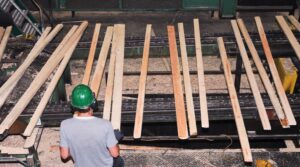 Australia’s forestry industry says cheap imported timber products are flooding the local market and taking up increased space in local homes and buildings. South Australian Forest Products Association (SAFPA) chief executive Nathan Paine said international trade conditions, fuelled by US tariffs, were responsible for imports reaching Australia at about half the price of local timber. This timber includes laminated veneer lumber (LVL) — a construction product that competes with locally grown radiata pine. …Analysis from Forest and Wood Products Australia showed LVL imports had increased 63% in 2025 compared to a year earlier. …Primary Industries Minister Clare Scriven said the state government could stand behind its past support for the timber industry. Housing Industry Australia chief executive of industry and policy Simon Croft said the pandemic’s trade disruptions had caused a spike in construction costs.
Australia’s forestry industry says cheap imported timber products are flooding the local market and taking up increased space in local homes and buildings. South Australian Forest Products Association (SAFPA) chief executive Nathan Paine said international trade conditions, fuelled by US tariffs, were responsible for imports reaching Australia at about half the price of local timber. This timber includes laminated veneer lumber (LVL) — a construction product that competes with locally grown radiata pine. …Analysis from Forest and Wood Products Australia showed LVL imports had increased 63% in 2025 compared to a year earlier. …Primary Industries Minister Clare Scriven said the state government could stand behind its past support for the timber industry. Housing Industry Australia chief executive of industry and policy Simon Croft said the pandemic’s trade disruptions had caused a spike in construction costs.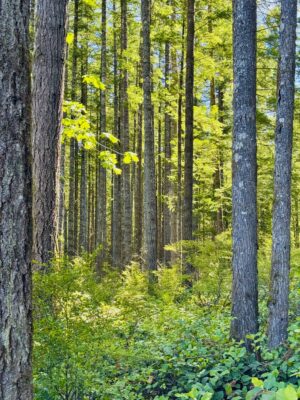 The United States is one of the world’s largest timberland investment markets, with returns driven primarily by land values rather than timber prices, according to Domain Timber Advisors’ timberland market analysis. Timberland values remain strong at the end of 2025, supported by continued appreciation in land values, while timber prices remain relatively flat. …During 2025, Domain underwrites 14 institutional bid events, 54 public listings, and 38 off-market or non-public offerings. By the end of the fourth quarter, the acquisition pipeline consists of 46 deals covering more than 500 thousand acres, providing visibility into pricing dynamics, regional demand shifts, and emerging non-timber value drivers. …Looking ahead, Domain states that renewable energy development and technology infrastructure are expected to expand non-timber revenue opportunities in 2026 and beyond. Alternative timber product markets, including molded fiber products and biomass-to-electricity, are expected to offset part of the pulpwood demand lost due to mill closures and production quotas.
The United States is one of the world’s largest timberland investment markets, with returns driven primarily by land values rather than timber prices, according to Domain Timber Advisors’ timberland market analysis. Timberland values remain strong at the end of 2025, supported by continued appreciation in land values, while timber prices remain relatively flat. …During 2025, Domain underwrites 14 institutional bid events, 54 public listings, and 38 off-market or non-public offerings. By the end of the fourth quarter, the acquisition pipeline consists of 46 deals covering more than 500 thousand acres, providing visibility into pricing dynamics, regional demand shifts, and emerging non-timber value drivers. …Looking ahead, Domain states that renewable energy development and technology infrastructure are expected to expand non-timber revenue opportunities in 2026 and beyond. Alternative timber product markets, including molded fiber products and biomass-to-electricity, are expected to offset part of the pulpwood demand lost due to mill closures and production quotas.

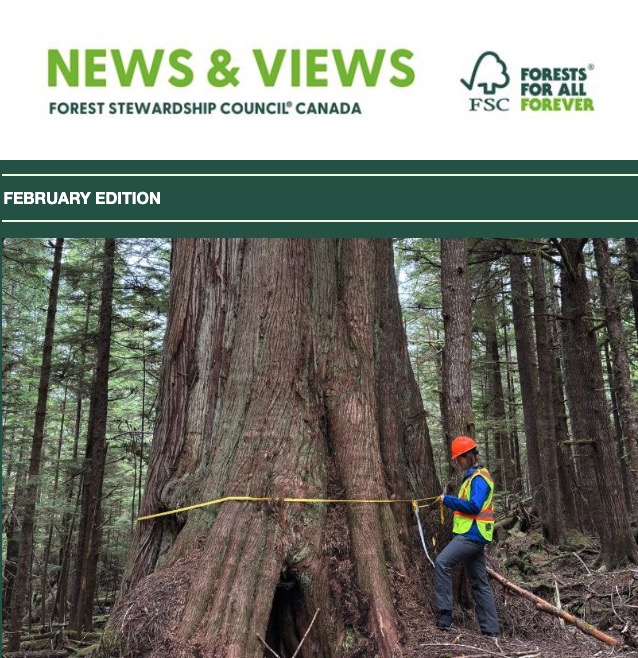 Don’t miss the FSC Canada, February Update: Canada’s Taan Forest is now the first FSC Verified Impact Forest, recognizing protection of Indigenous cultural values and biodiversity. FSC Canada is inviting input via a social metrics survey open until March 16, 2026. The edition also highlights two new job opportunities, an updated trademark policy for certificate holders, newly welcomed Canadian promotional licence holders, a new guide on integrating FSC certification into impact investing, and details on where FSC will be present at events in 2026.
Don’t miss the FSC Canada, February Update: Canada’s Taan Forest is now the first FSC Verified Impact Forest, recognizing protection of Indigenous cultural values and biodiversity. FSC Canada is inviting input via a social metrics survey open until March 16, 2026. The edition also highlights two new job opportunities, an updated trademark policy for certificate holders, newly welcomed Canadian promotional licence holders, a new guide on integrating FSC certification into impact investing, and details on where FSC will be present at events in 2026.
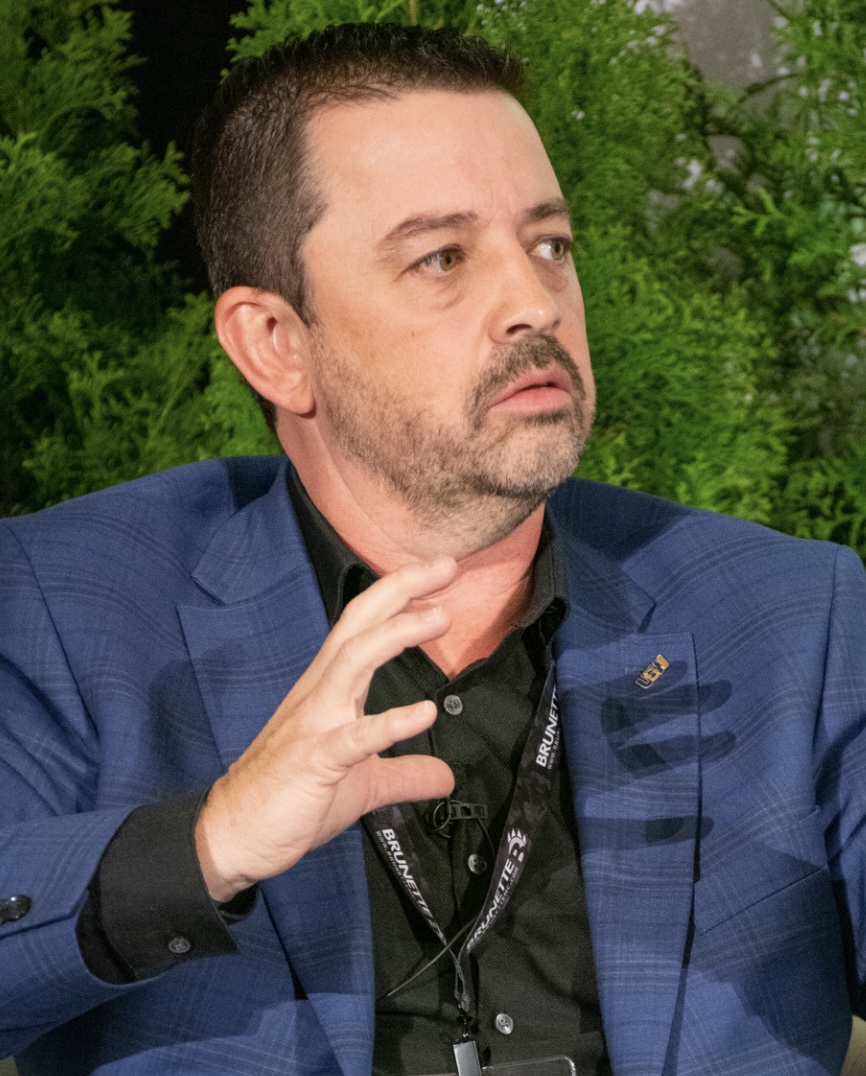
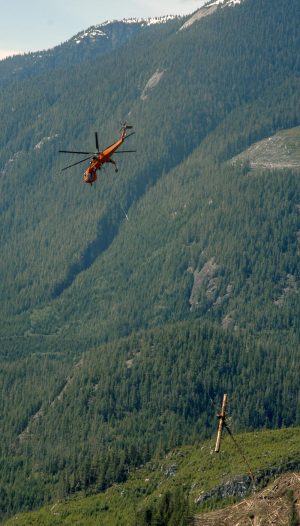 The attorney general of BC has decided to take over any potential prosecutions of those arrested for violating an injunction prohibiting people from blocking roads in an area of the Walbran Valley. Forestry company Tsawak-qin Forestry Limited Partnership, which has rights to log in the area where protesters have set up blockades, asked the attorney general to take over the proceedings, and to determine if there is enough evidence to charge those arrested with criminal contempt. Those arrested have faced civil contempt of court charges for alleged breaches of the injunction. …Lawyer Noah Ross, who represents Bill Jones, a Pacheedaht First Nation elder who opposes the logging, said, “By being willing to step in and fund the prosecution, they make it effectively cheaper for the logging company”. …The decision means it’s now up to the BC Prosecution Service to determine what charges, if any, it will approve against those arrested.
The attorney general of BC has decided to take over any potential prosecutions of those arrested for violating an injunction prohibiting people from blocking roads in an area of the Walbran Valley. Forestry company Tsawak-qin Forestry Limited Partnership, which has rights to log in the area where protesters have set up blockades, asked the attorney general to take over the proceedings, and to determine if there is enough evidence to charge those arrested with criminal contempt. Those arrested have faced civil contempt of court charges for alleged breaches of the injunction. …Lawyer Noah Ross, who represents Bill Jones, a Pacheedaht First Nation elder who opposes the logging, said, “By being willing to step in and fund the prosecution, they make it effectively cheaper for the logging company”. …The decision means it’s now up to the BC Prosecution Service to determine what charges, if any, it will approve against those arrested.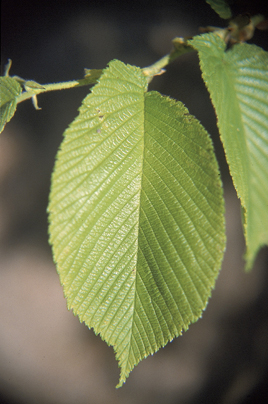

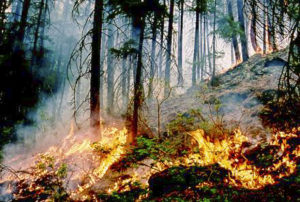 Forests Minister Ravi Parmer hosted the high-profile first National Wildfire Symposium in Vancouver and wildfire risk featured prominently at the 23rd B.C. Natural Resources Forum in Prince George. Dialogue at the symposium made it clear that wildfire is a coast-to-coast-to-coast challenge. It has stretched the resources of all provinces and territories. …But what if there is a way for our provincial government to more effectively spend available dollars to maintain wildfire suppression, improve prevention capabilities and support beneficial fires as an essential ecological function, while at the same time becoming better at identifying cross-government areas for new investments to improve wildfire resilience? This is the focus of a new report being published by the
Forests Minister Ravi Parmer hosted the high-profile first National Wildfire Symposium in Vancouver and wildfire risk featured prominently at the 23rd B.C. Natural Resources Forum in Prince George. Dialogue at the symposium made it clear that wildfire is a coast-to-coast-to-coast challenge. It has stretched the resources of all provinces and territories. …But what if there is a way for our provincial government to more effectively spend available dollars to maintain wildfire suppression, improve prevention capabilities and support beneficial fires as an essential ecological function, while at the same time becoming better at identifying cross-government areas for new investments to improve wildfire resilience? This is the focus of a new report being published by the 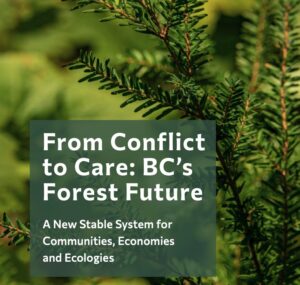 A forest advisory council has recommended shifting BC’s forest regime towards more local decision-making. The plan has received applause from forestry groups, the BC Greens and the head of the BC First Nations Forestry Council. But some experts warn the plan lacks teeth and risks putting fragile forest ecosystems at risk. …“I think of this like the cod fishery,” said Garry Merkel, a forester and co-chair of the advisory council, at the report’s launch event Monday. Merkel likened B.C.’s crisis to the fishery collapse on Canada’s East Coast. …BC First Nations Forestry Council’s Lennard Joe said he supports efforts to bring forest decision-making closer to people it affects. …But UBC forest management professor Peter Wood noted that the report made little mention of the province’s Old Growth Strategic Review. …Rachel Holt, a conservation ecologist worries that the council’s recommendations stop short of changes that are required to protect key ecosystems.
A forest advisory council has recommended shifting BC’s forest regime towards more local decision-making. The plan has received applause from forestry groups, the BC Greens and the head of the BC First Nations Forestry Council. But some experts warn the plan lacks teeth and risks putting fragile forest ecosystems at risk. …“I think of this like the cod fishery,” said Garry Merkel, a forester and co-chair of the advisory council, at the report’s launch event Monday. Merkel likened B.C.’s crisis to the fishery collapse on Canada’s East Coast. …BC First Nations Forestry Council’s Lennard Joe said he supports efforts to bring forest decision-making closer to people it affects. …But UBC forest management professor Peter Wood noted that the report made little mention of the province’s Old Growth Strategic Review. …Rachel Holt, a conservation ecologist worries that the council’s recommendations stop short of changes that are required to protect key ecosystems.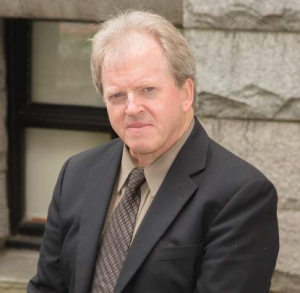
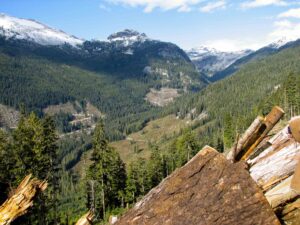 Lawmakers from both parties agreed at a congressional hearing Tuesday that the federal government must act to address the growing threat of catastrophic wildfires, but they were sharply divided over how, and whether pending legislation known as the Fix Our Forests Act offers the right path forward. The House of Representatives passed the FOFA legislation in January 2025, and its companion bill is pending in the Senate. …Republican supporters of the bill championed its focus on fast-tracking the thinning and clearing of forests on large tracks of land by making exceptions to requirements in bedrock environmental laws. They argue that those steps are a fix for intensifying fires. …Democrats on the House Committee sharply criticized parts of the wildfire bill, arguing that it unnecessarily erodes environmental safeguards and expands logging, despite limited evidence that either makes communities safer. …Outside of the hearing, scientists and environmental advocates also criticized parts of FOFA.
Lawmakers from both parties agreed at a congressional hearing Tuesday that the federal government must act to address the growing threat of catastrophic wildfires, but they were sharply divided over how, and whether pending legislation known as the Fix Our Forests Act offers the right path forward. The House of Representatives passed the FOFA legislation in January 2025, and its companion bill is pending in the Senate. …Republican supporters of the bill championed its focus on fast-tracking the thinning and clearing of forests on large tracks of land by making exceptions to requirements in bedrock environmental laws. They argue that those steps are a fix for intensifying fires. …Democrats on the House Committee sharply criticized parts of the wildfire bill, arguing that it unnecessarily erodes environmental safeguards and expands logging, despite limited evidence that either makes communities safer. …Outside of the hearing, scientists and environmental advocates also criticized parts of FOFA.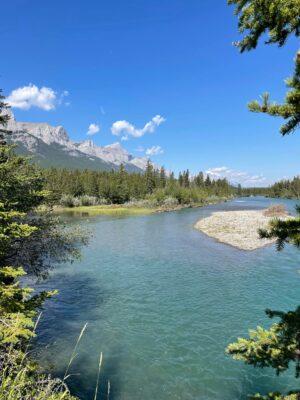 OLYMPIA — The House Agriculture and Natural Resources Committee showed a lively interest in repealing a rule that will lock up 200,000 acres of timber in Western Washington. The committee held a hearing Feb. 3 on House Bill 2620, sponsored by a mix of conservative Republicans and progressive Democrats. The bill targets the Forest Practices Board’s decision in November to widen and lengthen riparian buffers along streams without fish. The bigger buffers will eliminate $2.8 billion worth of timber, a University of Washington analysis estimates. The rule barely passed, 7-5. …The buffers, which go into effect Aug. 31, are needed to keep logging from raising water temperatures in most cases, according to Ecology. Timber groups say Ecology’s no-increase-in-water-temperature standard is humanly impossible to meet. What matters is that water temperatures stay cool enough for fish downstream, they argue. Forest landowners and the Washington State Association of Counties suggested buffers that would take 44,500 acres out of production.
OLYMPIA — The House Agriculture and Natural Resources Committee showed a lively interest in repealing a rule that will lock up 200,000 acres of timber in Western Washington. The committee held a hearing Feb. 3 on House Bill 2620, sponsored by a mix of conservative Republicans and progressive Democrats. The bill targets the Forest Practices Board’s decision in November to widen and lengthen riparian buffers along streams without fish. The bigger buffers will eliminate $2.8 billion worth of timber, a University of Washington analysis estimates. The rule barely passed, 7-5. …The buffers, which go into effect Aug. 31, are needed to keep logging from raising water temperatures in most cases, according to Ecology. Timber groups say Ecology’s no-increase-in-water-temperature standard is humanly impossible to meet. What matters is that water temperatures stay cool enough for fish downstream, they argue. Forest landowners and the Washington State Association of Counties suggested buffers that would take 44,500 acres out of production.  Misleading. Unjustified. Hypocritical. Those are just some of the words that Department of Energy scientists used to describe a 141-page report on climate change that was commissioned by DOE Secretary Chris Wright. The feedback appears in newly revealed emails that were made public as part of a court fight between DOE and public interest groups. And they show that criticism of the report isn’t limited to scientists outside the Trump administration. The department’s own internal reviewers took issue with the document, which was written by five climate contrarians from outside DOE who were handpicked by Wright. …One DOE reviewer echoed that opinion and said it was “misleading” for the report to talk about how climate change could boost plant growth without mentioning its other drawbacks. Another comment described the report’s criticism of climate modeling as an “unjustified (and at worst a biased) judgement.”
Misleading. Unjustified. Hypocritical. Those are just some of the words that Department of Energy scientists used to describe a 141-page report on climate change that was commissioned by DOE Secretary Chris Wright. The feedback appears in newly revealed emails that were made public as part of a court fight between DOE and public interest groups. And they show that criticism of the report isn’t limited to scientists outside the Trump administration. The department’s own internal reviewers took issue with the document, which was written by five climate contrarians from outside DOE who were handpicked by Wright. …One DOE reviewer echoed that opinion and said it was “misleading” for the report to talk about how climate change could boost plant growth without mentioning its other drawbacks. Another comment described the report’s criticism of climate modeling as an “unjustified (and at worst a biased) judgement.”